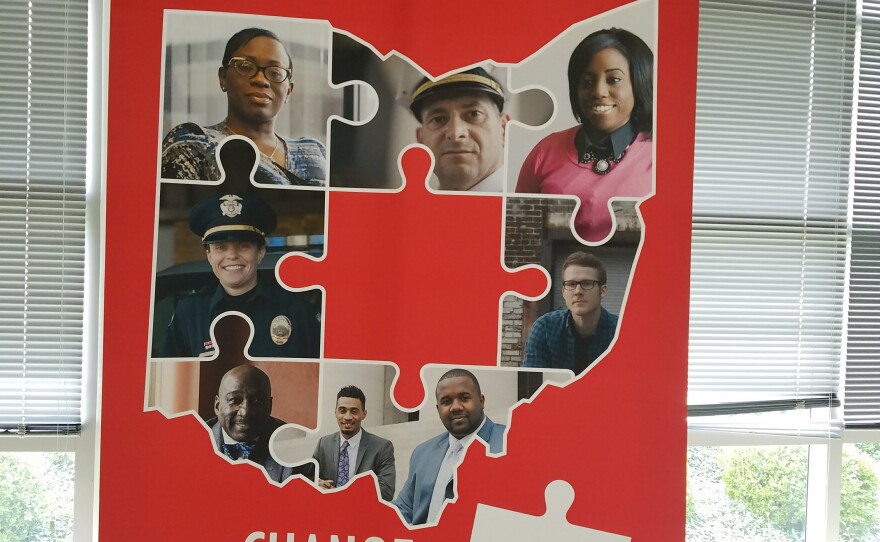More than 100 Columbus students, government officials, and service providers gathered Wednesday for a "My Brother’s Keeper" summit.
The nationwide effort began in 2014 at the urging of then-President Obama, who called for more action and support for boys and men of color. As Mike Foley reports, the summit focused on police and community relations.
The My Brother’s Keeper summit took place at the Columbus Police Academy and delivered the message of dialogue and change to high school students in a variety of ways from music to poetry.
“I want to be able to think of a future where I will be an equal individual, but today is not that day. We keep telling ourselves that life is not fair, so if that’s the case let’s tip the scale in our favor. I want to be looked at as the next kid to become president, the next kid who’s gonna make a change, the next kid who will change the boundaries of a generation.”
Columbus Mayor Andy Ginther noted that not all residents are sharing in the city’s successes, and he acknowledged the increase in gun violence.
“We can’t explain away or dismiss this spike in homicide rates. We have to accept the fact that some of the things we tried before are no longer working. We need to be willing to try new and innovative things to keep you, your friends, your younger brothers and sisters, your family members safe.”
The city plans to announce some new neighborhood efforts in the coming weeks. Ginther told students that the key involves building strong police and community relations, beginning with talking to each other and listening. So the summit took advantage of another conversation-starter happening around central Ohio, the Columbus Foundation’s Big Table. Building on that daylong effort to foster the human connection and civic engagement, students at the MBK summit broke into small groups with each table including a police officer. In this exchange, the officer explains why he wears a bullet-proof vest every day.
“Even doing truancy, you just don’t know. You know how many young men I find with guns, not many because they’re not that stupid that they’re out running around during the day with a gun on them. In the evening at night though, guns are just all over the place.”
Sgt. James Fuqua, the police division’s African American liaison, shared an experience he had with a police officer as a teen. After being struck by a bullet in a drive-by shooting, Fuqua fielded questions and accusations about being in a gang. Fuqua decided to become a police officer to make a difference, and he encouraged students to consider doing the same.
“Because you could be the one standing on this stage affecting someone else’s life. Now I can’t change all those things that happened to me when I was younger. But I’m in a position now to teach people that not all people that grow up in a certain neighborhood are a certain way – or just because of the color of your skin they’re automatically going to stereotype you a certain way.”
Students were paying attention and genuinely contributed to the discussion.
“Many of the things that happen in the inner city communities happen because our communities don’t have the things we need to survive. So our communities are dying. We need are community members to be engaged and improve the communities as well. This will be generational. So your kids will have pride in their schools and their communities. That’s how you lower crime rates in inner city communities. It’s not just by treating the symptom. We have to get down to the actual cause.”
“While a duty of a police officer is to de-escalate situations, as soon as an officer shows up to any situation it’s escalated because it’s like why are the police here, what did I do wrong. So one of the things we can do as citizens is to try and build that sense of accountability and community by observing officer and citizen interactions but also not interfering and trying to make sure that the experience is conducive to getting police business finished.”
“There’s a perception that the cops are one group and we’re another group, and it’s us against them. So we want to be a unity and one MBK village. We came to their house in this complex, and the officers can come to our turf kind of like a home and home series in college football. They can come to our schools and teach us and help limit that us versus them and turn into one MBK community.”
The thoughts of students Ricardo Felix, Charles Wallace Thomas, and Cedric Granger. The prevailing theme of the day -- students want more positive interactions with police and they’re open to establishing relationships with authorities rather than having the first interaction be adversarial.

















